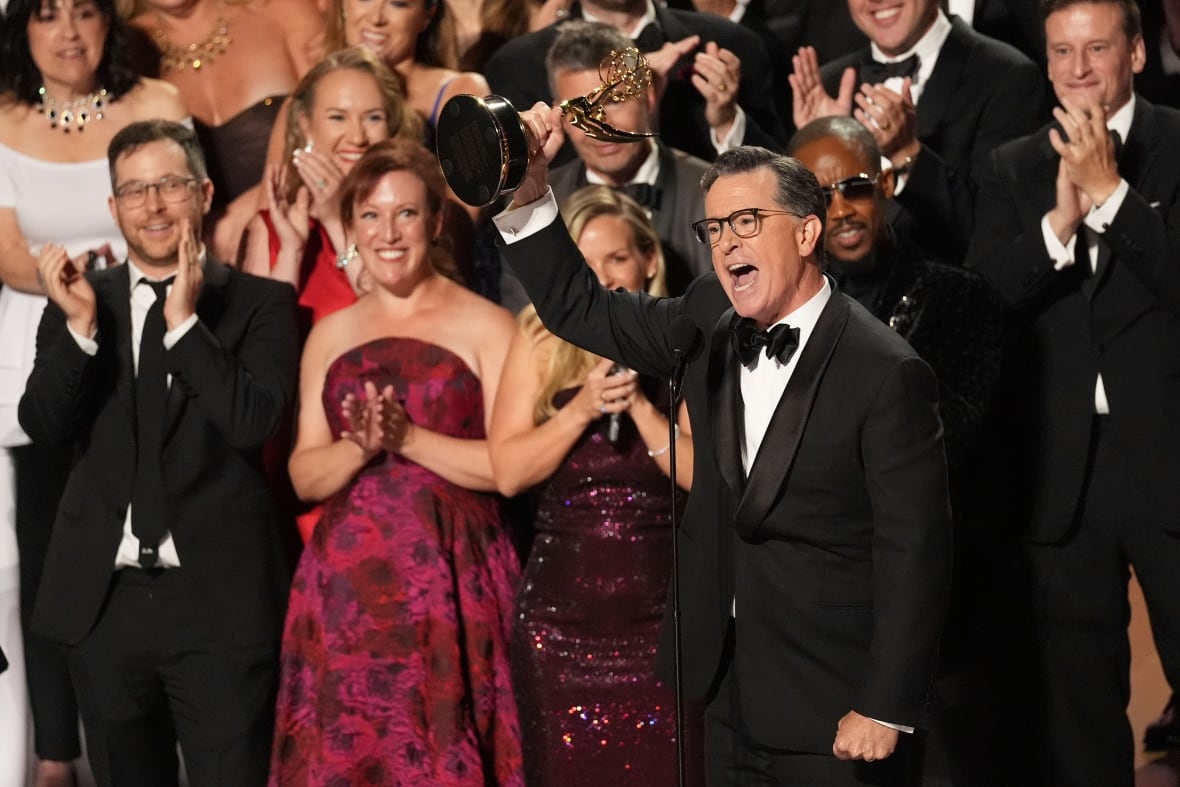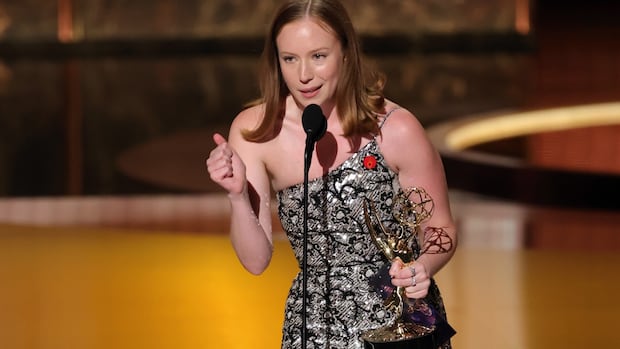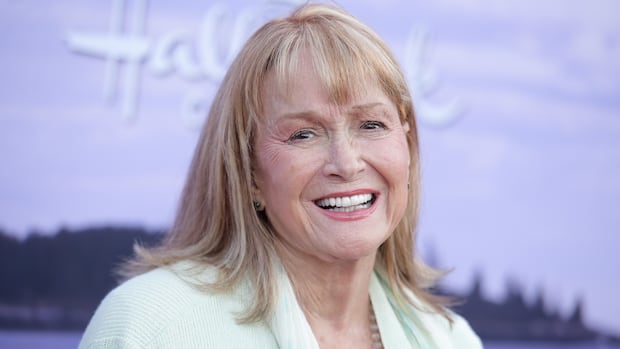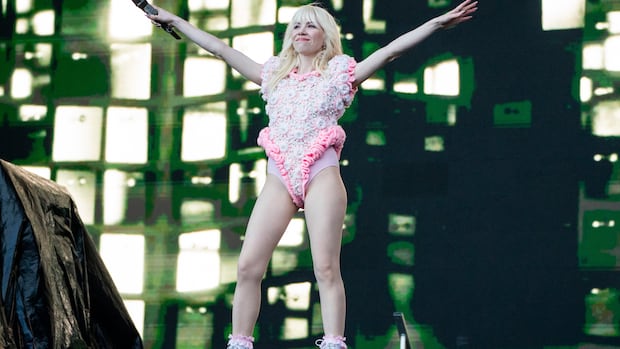Alongside the big wins and red carpet glamour of the 77th Emmy Awards, multiple stars took the award show as a chance to make political statements.
Hacks star Hannah Einbinder made the first and most prominent political statement of the night in her acceptance speech after winning best supporting actress in a comedy. She shouted out the Philadelphia Eagles, cursed Immigration Customs and Enforcement in the U.S. and spoke about the ongoing situation in Gaza, all in one succinct sentence.
“Go Birds, f—k ICE and free Palestine,” she shouted to end her speech.
Einbinder was also among some 4,000 actors and film industry professionals who signed a pledge last week promising not to work with film institutions or governments that are “implicated in genocide and apartheid against the Palestinian people.”
In a news conference after the award show, Einbinder spoke more about the cause which she says is “very dear to my heart,” and why she joined the petition.
“Boycotting is an effective tool to create pressure on the powers that be to meet the moment,” she said, reiterating that the boycott is not against individuals but institutions that are “directly complicit” in the situation, she said.
To date, at least 64,000 people have been killed in Gaza, where civilian aid is sparse and hunger is widespread.
She also said she felt it was important to speak about the conflict as a Jewish person because she sees the state of Israel and Jewish identity as separate.
Hen Mazzig, an Israeli author and activist, wrote an article for U.S. media in response entitled, “No, Hannah, That Wasn’t Brave.” In an interview with CBC News, he said that Jewish identity and the state aren’t so easily untied, in part because of the connections between the religion and the land.
According to Pew research data from 2020, eight in 10 Jewish Americans said that caring about Israel is an essential part of “what being Jewish means to them.” In 2024, about nine in 10 Jewish respondents had a positive view of Israeli people, while only 54 per cent had a favourable view of the government.
Mazzig said Einbinder’s statements were anti-Israel and not actually supportive of peace.
“I do think that if you believe in peace, if you believe in coexistence, if you care about humanity, why would she ignore the violence against Israelis. Why didn’t she speak about the hostages even once since October 7, 2023?,” he said.
Einbinder also donned a red Artists4Ceasefire pin — as did her Hacks co-star Megan Stalter, who also had the word “ceasefire!” written on her purse. In a later post on Instagram, Stalter called for a permanent ceasefire and an end to occupation.
Artists4Ceasefire advocates for an immediate and permanent ceasefire, the release of all hostages taken during Hamas’s Oct. 7 attack on Israel and the delivery of aid into Gaza.
Other stars, including The White Lotus actress Aimee Lou Wood, Succession‘s Brian Cox and F1 star Javier Bardem, also wore the pin.
Bardem also arrived on the red carpet wearing a keffiyeh — a traditional Arab headdress that has become synonymous with support for Palestinians since the war began.
On the red carpet, he also denounced what he calls a genocide, invoking the recent declaration of a genocide of Palestinians by the International Association of Genocide Scholars, as well as a “commercial and diplomatic blockade.”
“How many hundreds of thousands of dead children need to suffer for people to wake up?” Bardem told USA Today.
While comments in support of Palestinians made up the bulk of the political actions, support for Stephen Colbert’s cancelled show also had a political edge.
The Late Show With Stephen Colbert won the Emmy for best talk show, and the victory was met with the loudest round of applause of the evening, with audiences giving him a standing ovation and chanting his name.

The comedian’s show was cancelled earlier this year, shortly after Colbert criticized his network, Paramount, for settling a lawsuit with U.S. President Donald Trump over a 60 Minutes story. The network has said the decision was based entirely on the show’s finances, and that its performance, content or internal matters at Paramount played no role. But critics and politicians have speculated that Colbert’s statements were part of the decision, and the crowd’s reaction seemed to take his win as a rejection of the politics involved.
The Late Show With Stephen Colbert will end its run in May 2026.
Earlier in the ceremony the comedian had jokingly shown his headshot onstage in an effort to find work, but Colbert — usually not shy to mock the powerful — stayed apolitical.
Meanwhile, Television Academy chair Cris Abrego criticized Congress for voting to defund the Corporation for Public Broadcasting.
U.S. President Donald Trump wasn’t called out by name, and there were no statements about Charlie Kirk, the conservative commentator shot dead at a Utah university campus last week, either.
Award shows have a long history of political statements, from Michael Moore calling out then-president George W. Bush at the 2003 Oscars, to Chappel Roan calling for artists to make living wages at this year’s Grammy’s, to John Legend’s condemnation of ongoing racial injustice in 2015.
Statements about the ongoing war between Israel and Hamas have also taken centre stage in recent years, including at this year’s Oscars when an Israeli-Palestinian co-production won for best documentary feature, and filmmakers called for the end of destruction in Gaza and the return of the hostages.







